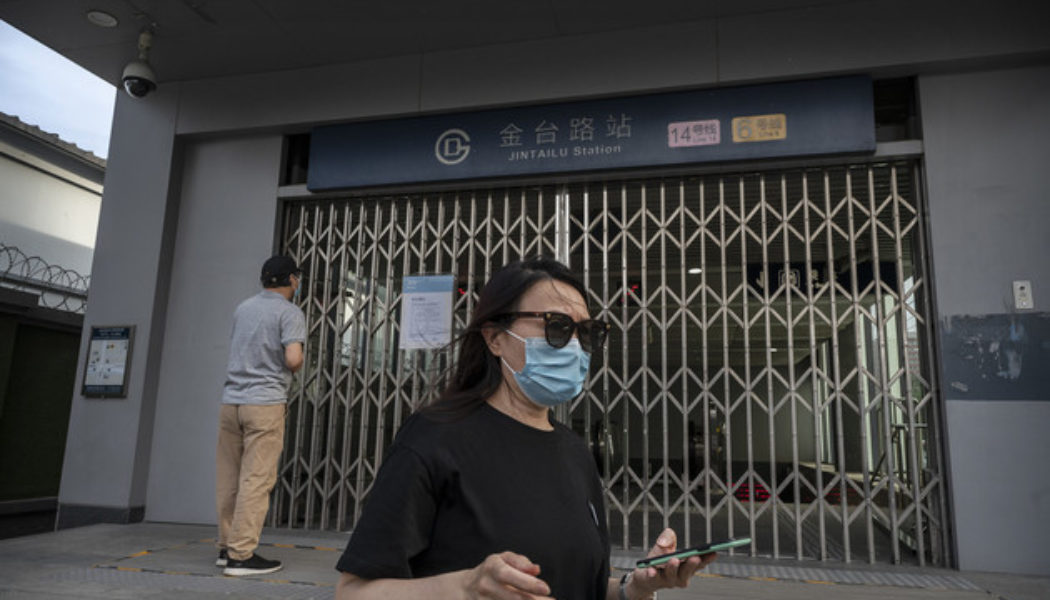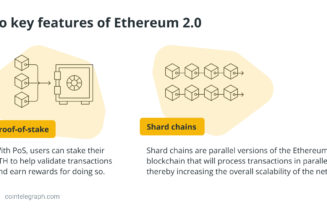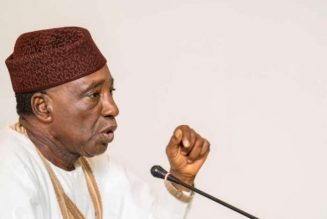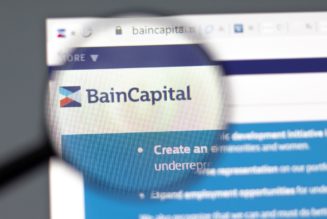This time round, Xi, who has not left China since the coronavirus pandemic erupted two-and-a-half years ago, did not even dial in for a Zoom call.
For the cohorts of corporate titans and policymakers traveling to Davos to read the runes on whether the next recession is just about to break, his absence was ominous. The conversation has shifted dramatically from wary appraisals of China’s strength to borderline panic about its fragility.
Xi’s heavy-handed “Zero COVID” strategy has triggered serious discomfort among Western businesses. The Economist Intelligence Unit estimates the lockdown stands to chomp an annualized aggregate of 6 percent off Shanghai’s economic output, plunging China’s leading port city into recession and causing Beijing to undershoot its overall gross domestic product target.
Those kinds of numbers are setting off tremors worldwide.
It fell to philanthropist George Soros — the ultimate Davos stalwart — to sum up the scale of what he slammed as “Xi’s worst mistake.”
“The lockdowns had disastrous consequences,” he said. “They pushed the Chinese economy into a free fall. It started in March, and it will continue to gather momentum until Xi reverses course — which he will never do because he can’t admit a mistake. Coming on top of the real estate crisis, the damage will be so great that it will affect the global economy. With the disruption of supply chains, global inflation is liable to turn into global depression.”
In another sign of souring sentiment, David Rubenstein, co-founder of the private equity Carlyle Group, told POLITICO in Davos that “India has been more attractive [to buy assets] of late than China.”
China admittedly has reasons beyond the coronavirus to keep its head down this year. Beijing knows full well it is no longer the flavor of the month because of Russia’s invasion of Ukraine. Indeed, Davos assumed an unusual “War and Peace” vibe this year, with a keynote speech from Ukraine’s President Volodymyr Zelenskyy. Thanks to China’s logically tortured position of “pro-Russia neutrality,” which won little support in the crowd, Xi’s hardly the most welcome guest anymore.
Playing to perhaps its only strength given the current mood, Beijing’s official delegation was headed by the most apolitical figure imaginable: the veteran climate envoy Xie Zhenhua. The message is clear: Let’s set aside disputes over coronavirus and security for the time being, and focus on the only issue on which the West is still genuinely interested to engage with China.
For Soros, though, Russian President Vladimir Putin and Xi Jinping were now united by stubbornly clinging to their errors. “They rule by intimidation, and as a consequence they make mind-boggling mistakes. Putin expected to be welcomed in Ukraine as a liberator; Xi Jinping is sticking to a Zero Covid policy that can’t possibly be sustained.”
Emergency stations in China
From China, the economic signals are dire. Just as the chief executives and ministers were clinking glasses by the Alps, China’s Prime Minister Li Keqiang was in emergency mode. Fears in the West are shifting from annoyance over subsidy-fuelled overproduction of everything from plastic toys to steel, to a more basic concern that supply chains are ruptured and the world’s factory is off the grid.
On Wednesday, China’s State Council, headed by Li, organized an “unprecedented” phone conference with 100,000 participants from across the country, at all levels of the bureaucracy.
There’s a single focus: To stabilize the economy. At the meeting, Li stressed the need for stability in “market entities, employment and people’s livelihood” and to keep the economy afloat wherever possible, state media reported.
“Since March, and especially April. some economic indices are particularly worsening. In some ways, and to a certain extent, the difficulty [we are facing] is bigger than that during the serious hit during the 2020 pandemic,” Li said, a day after the State Council rolled out a 33-point plan to get the economy back on track.
Stephen A. Orlins, president of the New York-based National Committee on U.S.-China Relations, noted: “The Chinese economy is in considerable difficulty. Nobody has a crystal ball but if the zero-tolerance COVID policy stays in effect, and if COVID continues to pop up, the Chinese economy may contract in 2022. For a country that’s experienced 40-plus years of growth, this is a shock.”
Li’s say on economics is unusual. For much of his presidency, Xi has taken on most of the economic powers traditionally accorded to the prime minister, rolling out nationalistic policies that focused on clamping down the Big Tech and other innovative sectors. When the crisis hit, however, he took a step back and put Li upfront as the fixer, while the Communist Party prepares for the once-every-five-year congress that is likely to see Xi take the helm for the third time.
The biggest pessimists
Foreign businesses are unsure about how to cope without a market that used to be their irreplaceable profit engine.
“While our surveys find that there is broad pessimism among CEOs across the regions of the U.S., China and Europe, CEOs of Western multinationals in China are recorded as being the most pessimistic about current business conditions,” said David Hoffman, senior vice president of The Conference Board, an international economic-research body financed by donations from large corporations.
“Unexpected, sporadic and widespread COVID-19 lockdowns across numerous Chinese cities, most prolifically Shanghai, and the logistics, people and production havoc these so-called Zero COVID policies have wreaked across the commercial sphere have clearly taken their toll on business sentiment in the region,” Hoffman said.
Whether the future looks rosier or gloomier depends on whom you ask. For Hoffman, the CEO survey shows that there’s a general sense of long-term optimism, with “only 17 percent of the China group say they’re diversifying away from Chinese suppliers,” suggesting “there’s more coupling than decoupling happening.”
Siva Yam, president of the Chicago-based U.S.-China Chamber of Commerce, also noted a divergence in sentiment between different sectors.
“You do see negative sentiment because of the supply chain interruptions. For big business … you are not going to see a lot of new investment because China is not as competitive and you have increasing regulation. For small to medium sized companies that have a niche product that they can sell to China, they continue to be bullish … [because] they are not so impacted by [new] regulations,” he said.
But Jeremy Farrar, director of the Wellcome Trust, a foundation, was more broadly skeptical of China’s outlook because of the pandemic management.
Calling China “a great unknown,” Farrar told POLITICO: “I don’t believe a Zero COVID policy is sustainable, and at some point, China will go through a big epidemic. And the population in China has a very different immunity to the rest of the world.”
“So that’s a big concern.”
Speaking at a panel co-sponsored by POLITICO, Stéphane Bancel, chief executive of vaccine-maker Moderna, added: “Like Jeremy, I worry a lot about China. Because I think as the virus becomes more and more infectious it is less controllable with techniques that were wonderful in 2020 to prevent a lot of deaths.”
Xi’s absence and his Zero COVID strategy are all the more galling given his no-holds-barred commitment to globalization back in his 2017 script in Davos.
“Whether you like it or not,” the Chinese leader said back then, “the global economy is the big ocean that you cannot escape from. Any attempt to cut off the flow of capital, technologies, products, industries and people between economies and channel the waters in the ocean back into isolated lakes and creeks is simply not possible.”
Lofty sentiments, perhaps, but China itself is now the one seeking to be the island, jutting clear of that big ocean.
Sarah Wheaton, Matt Kaminski and Jamil Anderlini contributed reporting.
[flexi-common-toolbar] [flexi-form class=”flexi_form_style” title=”Submit to Flexi” name=”my_form” ajax=”true”][flexi-form-tag type=”post_title” class=”fl-input” title=”Title” value=”” required=”true”][flexi-form-tag type=”category” title=”Select category”][flexi-form-tag type=”tag” title=”Insert tag”][flexi-form-tag type=”article” class=”fl-textarea” title=”Description” ][flexi-form-tag type=”file” title=”Select file” required=”true”][flexi-form-tag type=”submit” name=”submit” value=”Submit Now”] [/flexi-form]









